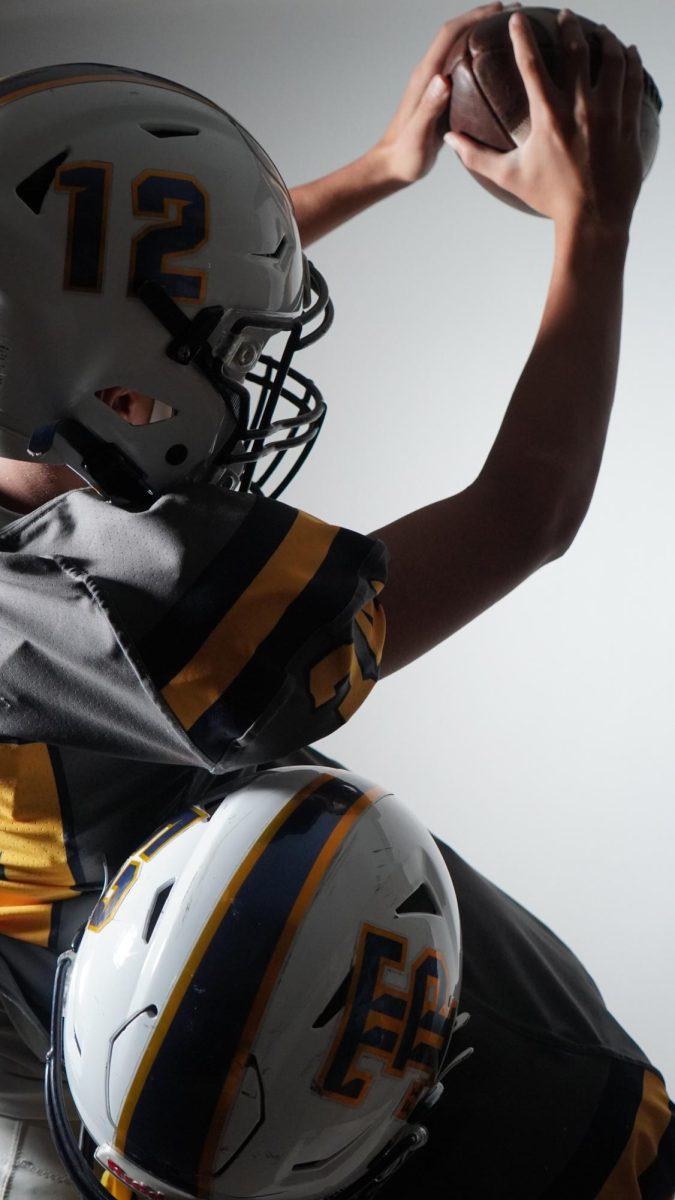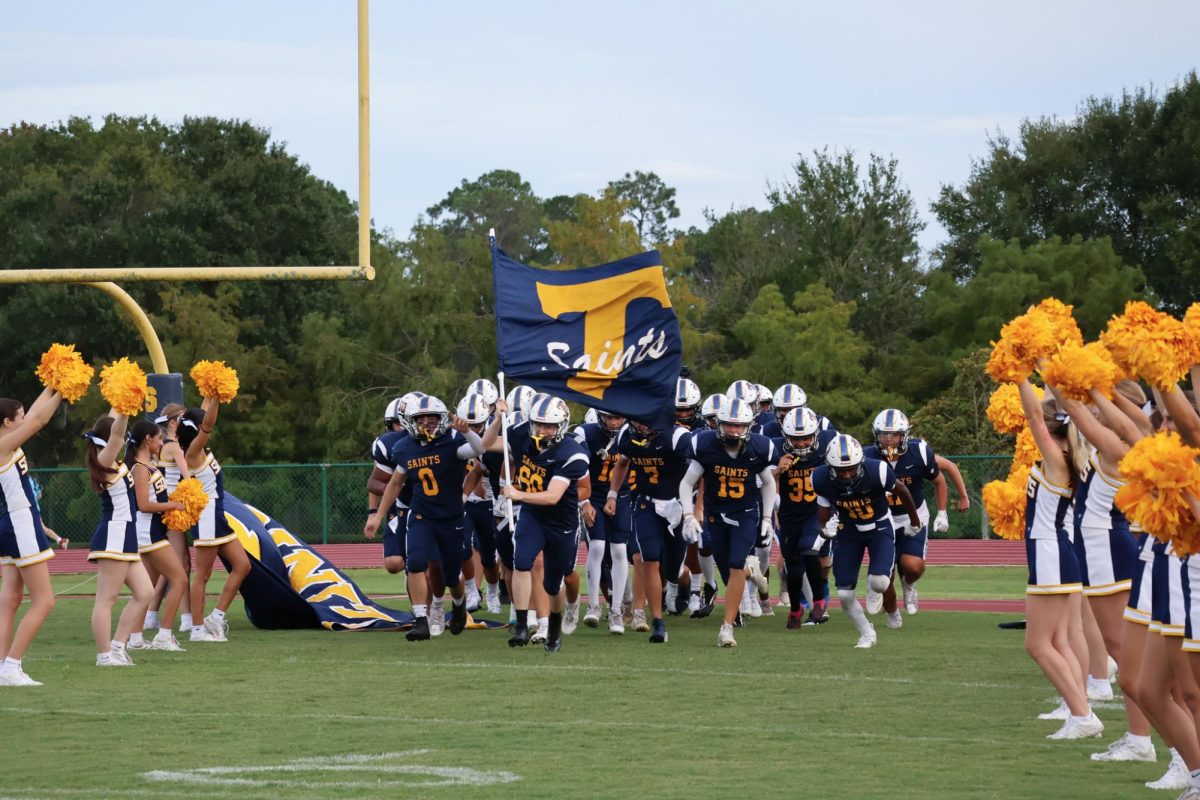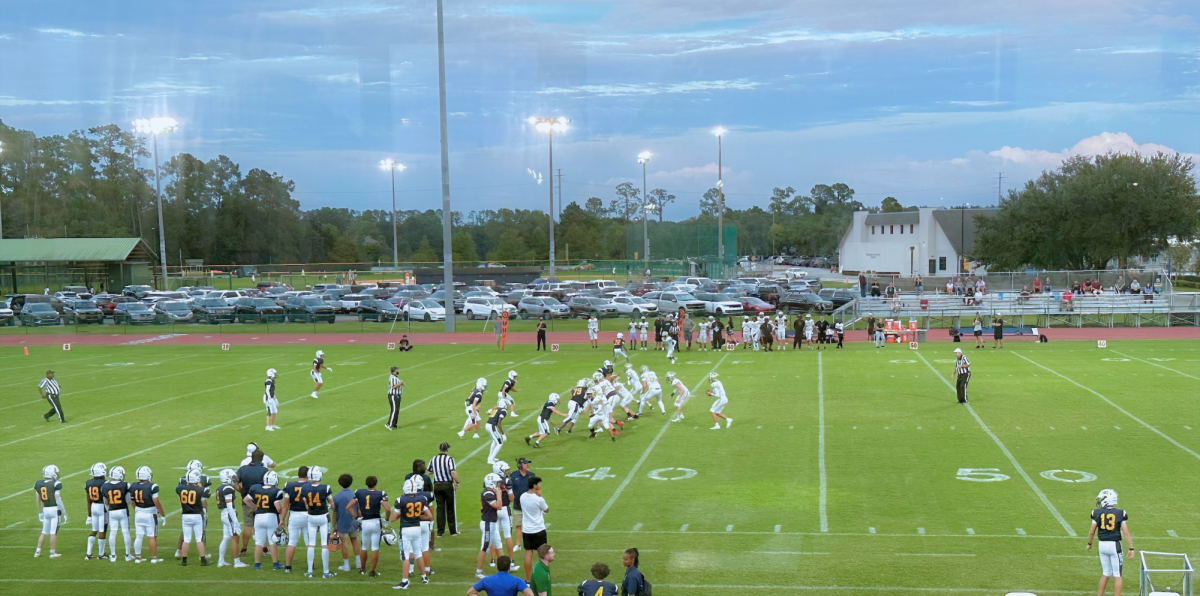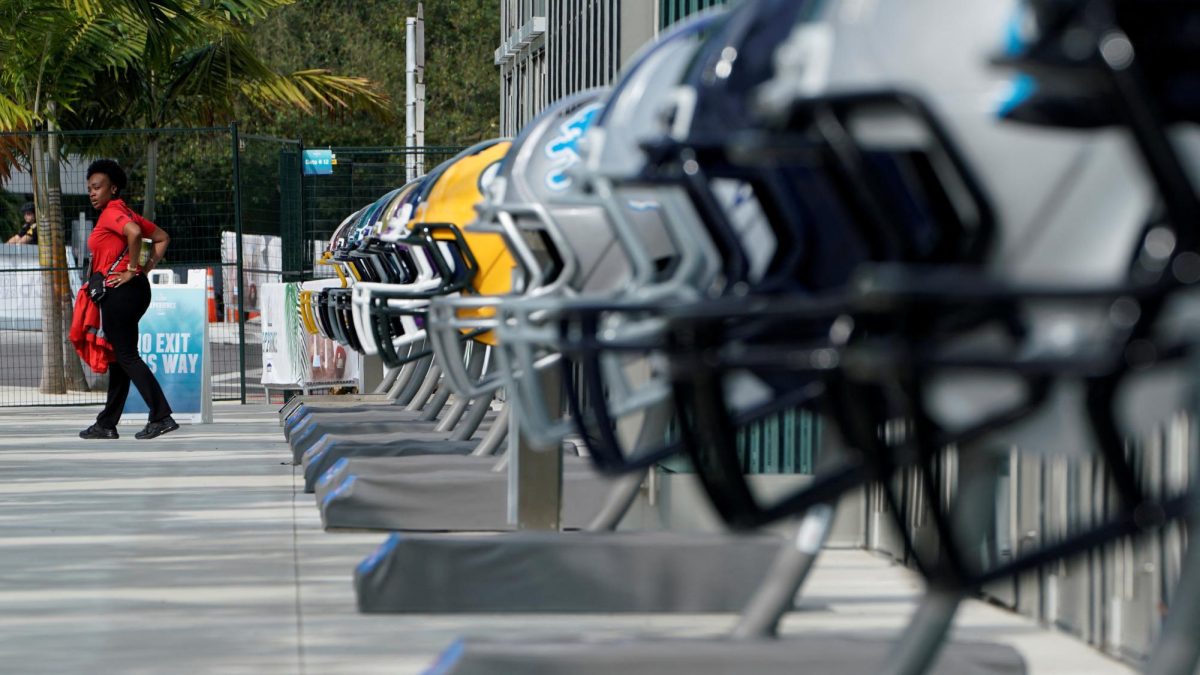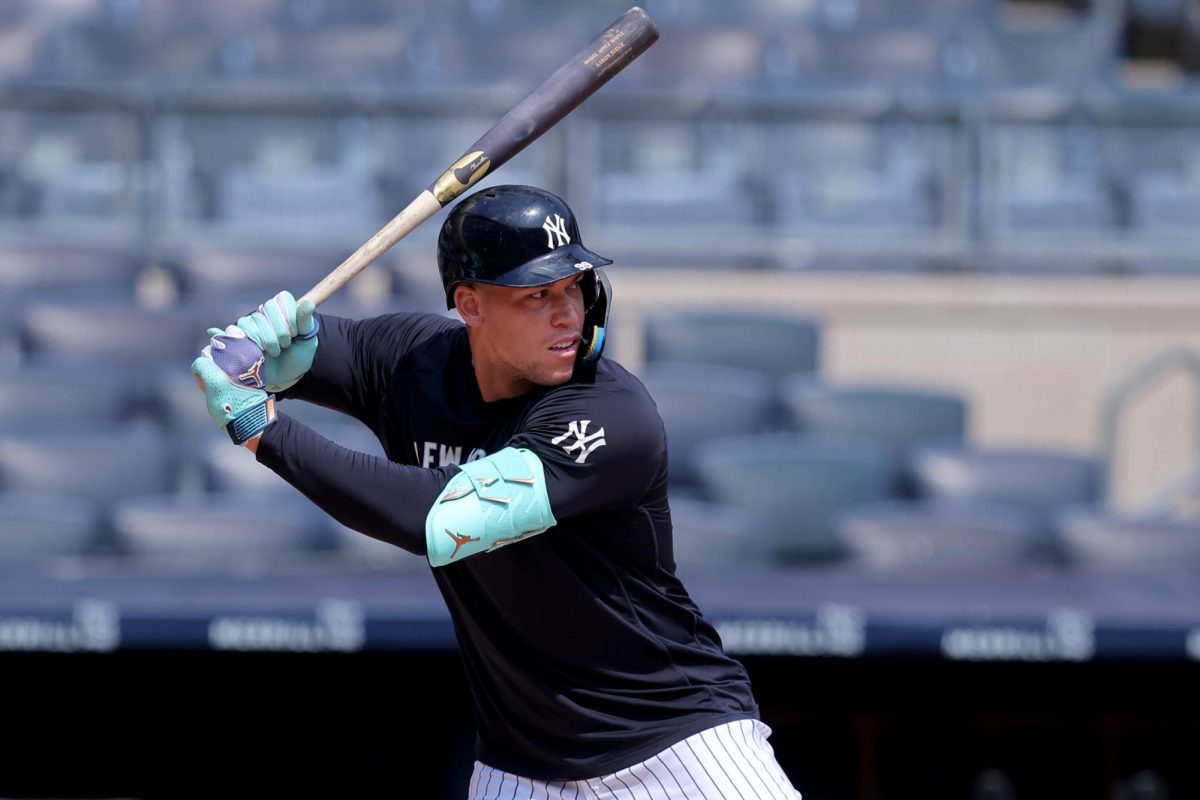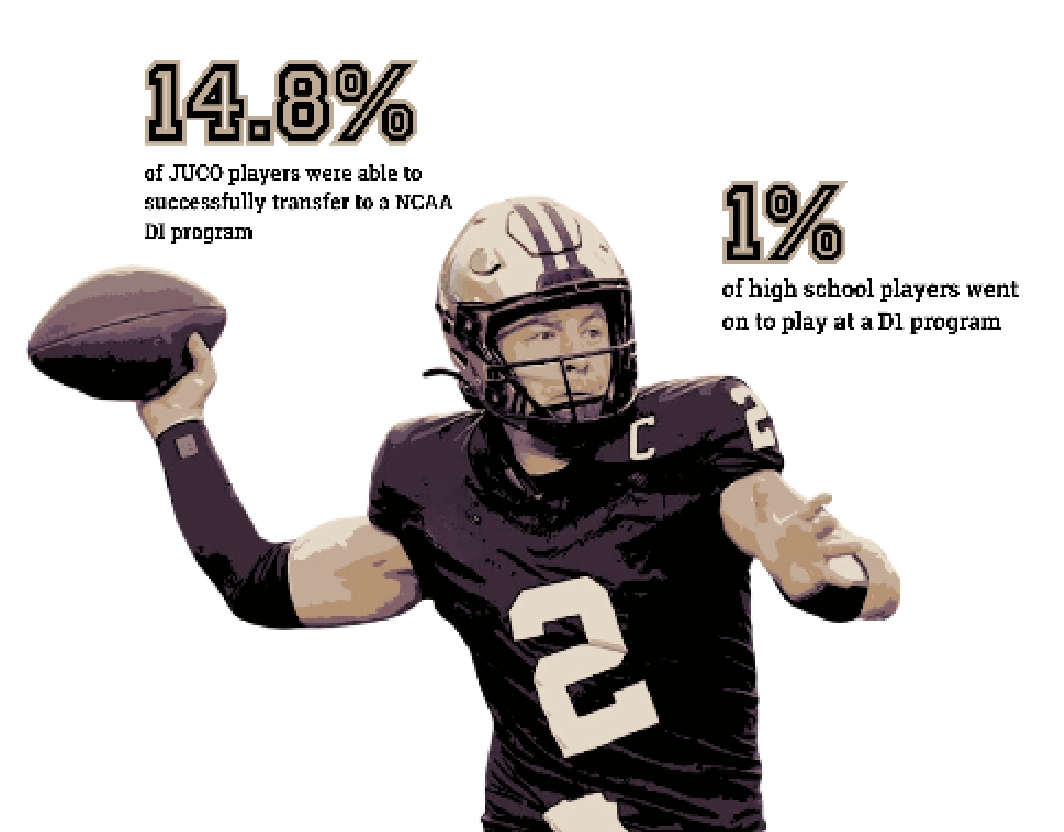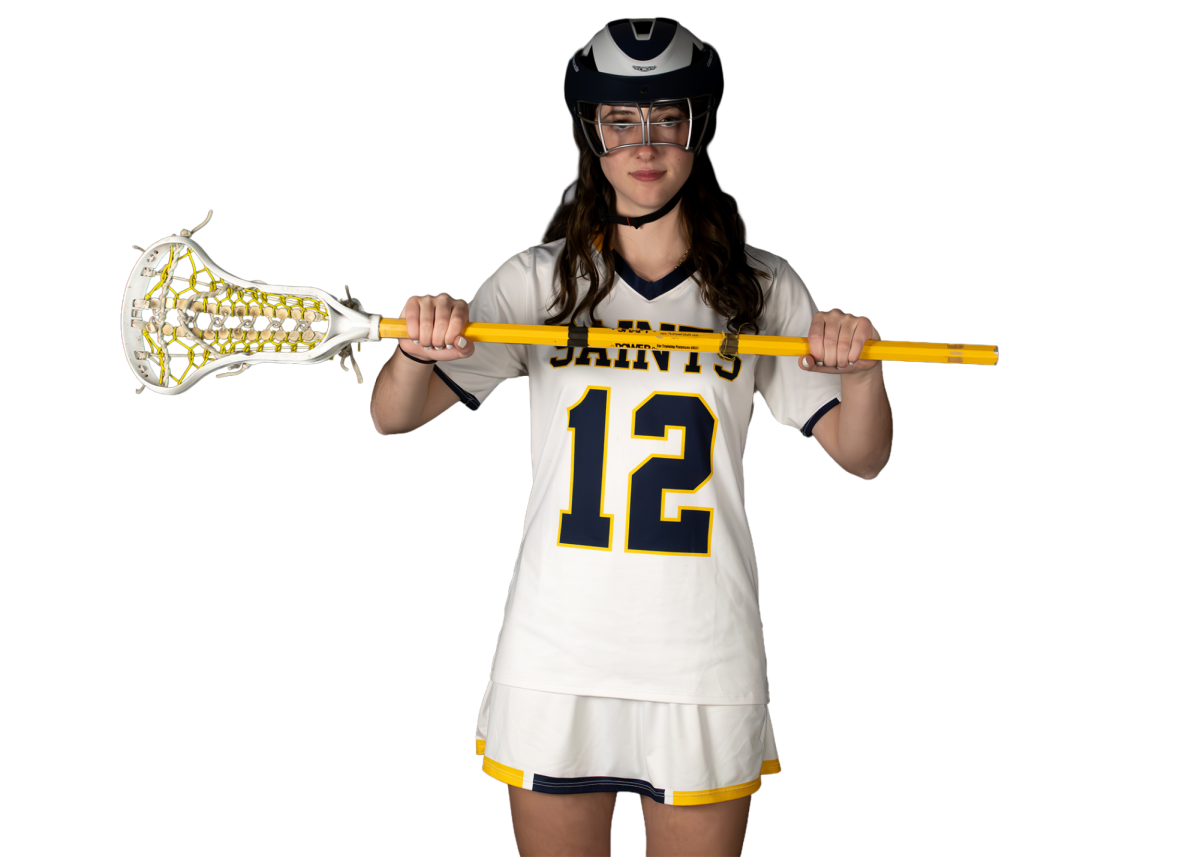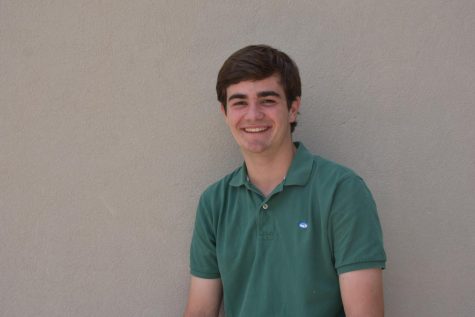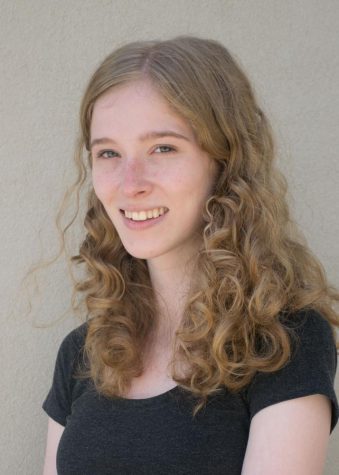As soon as a student starts at Trinity, the pressure of college is almost immediately felt. As 6th graders, they see their big brothers and sisters graduating and going all over the country to different schools. Throughout middle school, teachers are constantly preparing you for how it is going to be in high school and college. Then high school hits and it all becomes real. There are some students, however, that have been thinking of college for much longer than those 6th graders.
Playing a collegiate sport requires years of experience in the sport and a commitment to the craft that is unparalleled to nearly any other activity done in life. For example, junior Sophia Olore has played soccer since she was three years old. Senior tennis player Sam DiMaio has played tennis competitively for nine years and senior Ethan Groff has always dreamed and worked towards the goal of playing Division I college baseball.
According to the National College Athletic Association, nearly 8 million students play high school athletics, but only six percent of those 8 million—480,000 students—will go on to play collegiate athletics.
Many do not know what it takes to actually play a collegiate sport, and even fewer know about the recruiting process. So, with the help of five athletes from Trinity that have signed to continue their athletic career in college, here is a short rundown of the college recruitment process.
It is important to know that every athlete has a different experience depending on age, school and sport. The differences start with the earliest communications with schools and coaches. The rules vary slightly depending on the sport, but they are all issued by the NCAA and are therefore very similar. For example, DiMaio, who is committed to West Point for tennis, was able to contact their tennis coach at a tournament her freshman year, but the coach was not allowed to contact her until junior year. Similarly, senior and future Rhodes College swimmer Kaitlin Gasner contacted Rhodes as early as 10th grade, but they were not allowed to contact her until the end of junior year. However, Groff, who will attend Tulane University for baseball, was not allowed to call coaches until September of his junior year.
The next step after receiving interest from schools is typically to go to the school on an official or unofficial visit. Gasner most recently went on an unofficial visit to Rhodes in August.
“I have visited the school several times,” Gasner said. “Division 3 schools don’t really offer ‘official’ visits because they can’t cover payments and fees, etc. But I was invited to spend the night at the school and hang out with the team which was such an awesome experience.”
Olore also never went on an official visit to her committed school, George Washington University, but has been visited the D.C. area several times to see the campus and plans on going back sometime next year. DiMaio, meanwhile, visited West Point in late September on an official visit, and Groff visited Tulane in November.
“It was a great experience,” Groff said. “We got to hang out with the team, be on the field for scrimmages, [received] VIP passes to the football game, saw all the gear we receive, got a tour of campus and athletic facilities and talked to academic and athletic reps that assist the baseball team.”
After establishing interest and visiting campuses, it’s all about which school feels the best to each athlete. Of course, this is different for every student. Some like larger city schools while others prefer a more traditional college town feel. Olore and Groff chose their schools because of their locations. Gasner, meanwhile, has personal connections to the school. She also chose Rhodes because it felt like home to her. She loves the city of Memphis and the southern hospitality that comes with it.
“The campus is gorgeous and is sometimes called a miniature Hogwarts! Stepping onto campus just promoted a scholarly, yet down to earth, amiable vibe. I knew Rhodes was a great
school for its successful, yet rigorous academics, and it’s accomplishments out of the classroom. It is the perfect fit for me athletically and personally. Rhodes insists on connecting and giving back to those around the area of Memphis and across the nation and I wanted to be a part of that selfless family too.”
DiMaio also felt a deep sense that West Point would be the place for her to continue her athletic career since a lot of her family is in the military.
“Their motto of “Duty, Honor, Country” really resonated with me, making me feel gratitude toward people who came before me, who risked their lives for my freedom and the freedom and safety of all Americans,” DiMaio said. “I want to do the same. Originally, I was surprised about how passionate I am, since I had never really been interested in the army before, but West Point is the perfect school for my personality, my morals, my academics and tennis career. It just clicked.”
After a student decides on which school is the best fit, they have to actually apply, just like all their peers. Groff’s experience was different than many other baseball players because he committed later into his high school career, while many baseball players commit early on. Gasner was already a little more familiar with the process than others because her sister Kendall Gasner ‘16 had gone through the process not long before her.
“It was a bit more reassuring because I knew the ropes and had already met the coach,” Gasner said. “So, my process was a mixture of both typical efforts of applying and unique experiences of having a familiar background.”
Since Olore is only a junior, she has not had to actually apply to George Washington yet.
“[In] August, they called my coach and offered me a spot on their team,” Olore said. “That same month I had to call the head coach and talk to her about the school and asked her any questions I had. From there, I had to send them my transcript. Since GW is a private school, they require you to send in your PSAT, ACT, or SAT scores. I decided to take the October SAT’s. Once I got my scores back I had to send them to GW and the coach has to “walk” my application through admissions to make sure I would get in. I had to submit what major I would be enrolled in as well. Finally, in November I found out that I was admissible. The next night I called the head coach. This is where they tell you that they consider you as a verbal commit.”
Since DiMaio was committing to a military academy, she had to not only have an actual application, but she also needed a nomination from a congressman, representative or the Vice President. This process required its own application and interview. After getting the nomination, she needed to complete a physical fitness test, take a medical exam, vision test and send in her dental records.
After all the visits, applications and waiting, the athletes finally get into the school of their choice. They are able to continue their athletic journey at the next level. These athletes get to continue their dreams and play their sport at the collegiate level.





